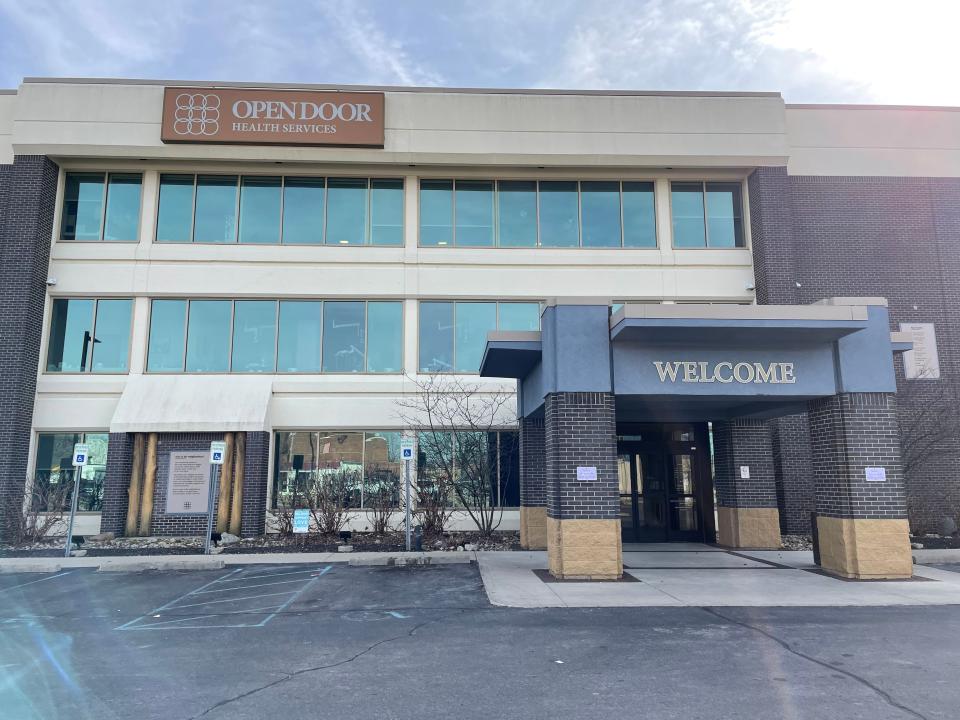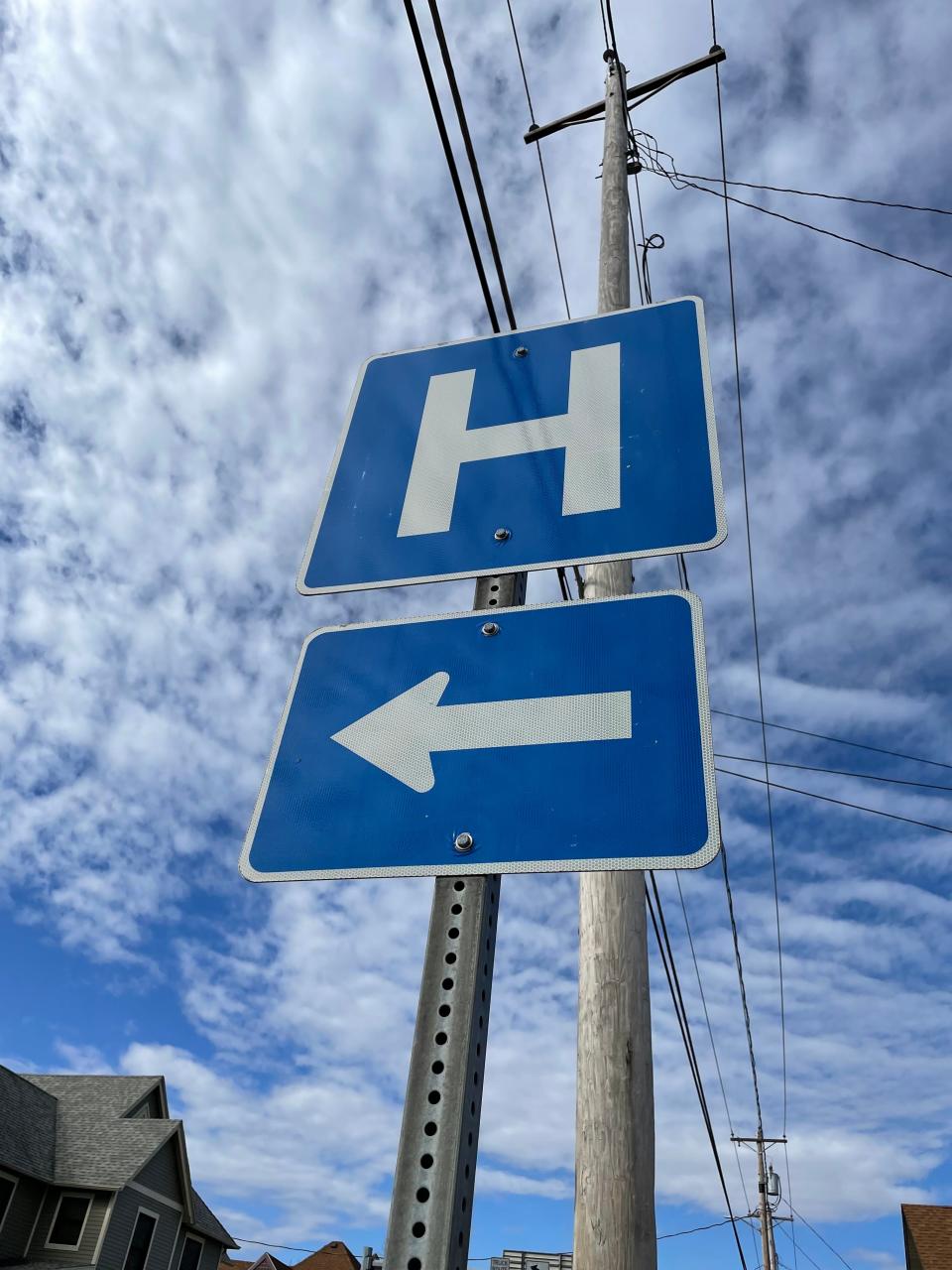Bill passage ‘opens floodgates’ for mental-health care for aging individuals
EDITOR'S NOTE: The following is part of a class project originally initiated in the classroom of Ball State University professor Adam Kuban in fall 2021. Kuban continued the project this spring semester, challenging his students to find sustainability efforts in the Muncie area and pitch their ideas to Deanna Watson, editor of The Star Press, Journal & Courier and Pal-Item. This spring, stories related to health care will be featured.
MUNCIE, Ind. — On Dec. 29, 2022, President Biden signed the 2023 Omnibus Appropriations bill and the included Mental Health Access Improvement Act into law, providing Medicare beneficiaries greater access to mental-health care.
The last time Medicare mental-health-provider regulations were updated was the same year former president George H. W. Bush was sworn into office. As a result of the Omnibus Budget Reconciliation Act of 1989, the only mental-health providers eligible for Medicare reimbursement were clinical psychologists and licensed clinical social workers.
However, 40 percent of all behavioral health professionals with a master’s degree consist of licensed professional counselors (LPCs) and licensed marriage and family therapists (LMFTs), according to the American Counseling Association.
This limited pool of mental-health providers, many of which were not trained in gerontology, left aging adults with a Medicare coverage gap, forcing them to pay out of pocket for care or not be seen at all.
Now, with Medicare limits and budgets stretched, one of the most vulnerable populations will have more opportunities to fulfill their mental-health needs.
Growing older and living longer
According to a 2020 article by Emma E. McGinty, Rachel Presskreischer and Hahrie Han, published in “The Journal of the American Medical Association,” approximately one in four Medicare beneficiaries has mental-health or substance-use disorders. But mental-health problems aren’t just suddenly becoming more prevalent in aging individuals. Population growth is contributing to this swell.
The United States Census Bureau released an article in 2018 that anticipates “nearly 1 in 4 Americans will be 65 years and older, the number of [adults aged] 85-plus will triple and the country will add a half million centenarians” by 2060.

“The needs around older adults receiving mental-health care is only going to become stronger over time,” said Dr. Mary Chase Mize, an LPC and part-time clinician in Georgia. “We’re only going to see more older adults in the world for the foreseeable future.”
Mize took an interest in aging and later-life counseling through her initial clinical work supporting caregivers of those with Alzheimer’s. She said she started seeing first-hand the disparities between the needs of older adults and the resources they’re provided.
Closing the Medicare coverage gap
According to the Health Services and Resources Administration, a third of the 92 counties in Indiana are recognized as High Needs Demographic Health Professional Shortage Areas (HPSAs), and all but 10 counties are designated demographic HPSAs.
In other words, millions of Hoosiers can’t access mental-health care because there aren’t enough providers.
The high rates of High Needs Demographic HPSAs combined with a shortage of Medicare mental-health providers put older adults seeking mental-health treatment in a difficult position.
Federally Qualified Health Centers (FQHCs) receive support from the Health Resource and Service Administration to provide accessible healthcare-related services to underserved populations. However, these health centers are also facing a shortage of mental-health professionals.
Dr. Nicholas Lee is a health-service provider in psychology at Open Door Health Services in Muncie, a Federally Qualified Health Center and Health Professional Shortage Area.

“We have (about) 25 behavioral health clinicians on staff. (But) we are still way under the number of people we technically need to meet the demand in our area,” Lee said.
With the bill’s passage, 225,000 additional licensed mental-health professionals will now be available to Medicare beneficiaries. Lee is hopeful that this expansion will provide solutions for HPSAs and mental-health care for the community but recognizes this expansion comes with physical limits.
Ensuring the bill’s efficacy goes beyond a signature
“Even if we could go out and hire 15 new providers right now, we need to find a place to put them — to adequately resource them and support them in the work they’re doing,” Lee said. “My hope is that this bill would help fund those things in the future.”

Even though the bill has been signed into law, many see more work to be done ahead.
Mize said she believes there’s more reason for counseling programs to provide gerontology-focused training to clinicians now that the bill is passed.
“(We need) to make the connections to the needs of the world and the skills that you can have as the counselor and how those two will coincide,” she said. “Counseling programs that make that clear — who can recruit and retain people who want to do that work — will be critical in the next few years.”
Nick Gowen, an LPC from Nashville-located The Works Counseling Center, shares a similar air of momentum as Mize.
“The floodgates just opened for therapists, and we have a brand-new opportunity to connect with clients,” he said. “Being a therapist is the most pride I’ve ever taken in a career and to see a milestone happen like this just reignites my belief that what we’re doing is really important.”
This article originally appeared on Muncie Star Press: Bill ‘opens floodgates’ for mental-health care for aging individuals

